 When I was a kid, there was a pop song whose words mystified me. My dad explained that it was about an American coal miner trapped in debt slavery to the mining company he worked for. The company owned the grocery store where he bought food, and his wages were set so low that he could never earn enough to escape his debt.
When I was a kid, there was a pop song whose words mystified me. My dad explained that it was about an American coal miner trapped in debt slavery to the mining company he worked for. The company owned the grocery store where he bought food, and his wages were set so low that he could never earn enough to escape his debt.
The refrain went like this:
You load sixteen tons, what do you get?
Another day older and deeper in debt.
Saint Peter, don’t you call me, ’cause I can’t go—
I owe my soul to the company store.
My dad’s explanation was a real eye-opener for an eight-year-old. It was an inflection point in my growing awareness of basic economics and the harsh realities of this world. The singer laments that Saint Peter shouldn’t call him home to heaven because he still owes not only his bill but, in a sense, his very soul to the company store.
 Bonded labor in that form no longer exists here in the United States, as far as I know. But severe poverty, often driven by heartless mercantilism, has been a reality for people throughout history. John Steinbeck’s The Grapes of Wrath, written in 1939, was a blistering critique of the conditions farm workers faced in California at the time—working for 25 cents a day, barely staying ahead of starvation.
Bonded labor in that form no longer exists here in the United States, as far as I know. But severe poverty, often driven by heartless mercantilism, has been a reality for people throughout history. John Steinbeck’s The Grapes of Wrath, written in 1939, was a blistering critique of the conditions farm workers faced in California at the time—working for 25 cents a day, barely staying ahead of starvation.
In recent months, I’ve learned about a man in his late forties who has essentially been enslaved for the last 27 years. He works in a brick-making company, often putting in 14-hour days. He earns just $3 a day, in a country where that amount buys very little.
Like the song above, he owes his soul to the company store. Legally bound to his employer until his debt is paid—a debt he can never repay at such wages—he lives in a hopeless cycle. He has a wife and three children, is illiterate, and his health is failing. He is also a Christian living in a non-Christian country.
And here I sit—my air conditioner is humming, my stomach is full from a nice lunch, and I just finished my afternoon coffee. Yet my heart is troubled, because the gulf between my comparative wealth and this man’s crushing poverty feels like an unspeakable unfairness. We often say, “We live in a fallen world,” and sometimes we catch a glimpse of the depravity and injustice that are all too common.
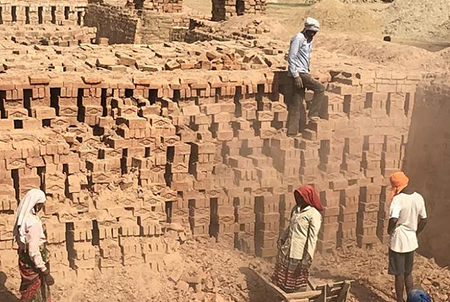 So, what can I do? What do I plan to do? First, I can write this and share it with you, my friends. I can ask for your prayers—not only for me, but especially for this exploited man and his young family. You don’t need to know his name or his country to lift him in prayer.
So, what can I do? What do I plan to do? First, I can write this and share it with you, my friends. I can ask for your prayers—not only for me, but especially for this exploited man and his young family. You don’t need to know his name or his country to lift him in prayer.
And for me personally: please pray as I research and take steps toward finding ways and organizations that can help this man pay off his debt and free him from the hopeless bondage he has endured for so long. It can be done. There are ways. True, it won’t change life for the hundreds of thousands of similar Christian families trapped in the same system of “bonded labor”.
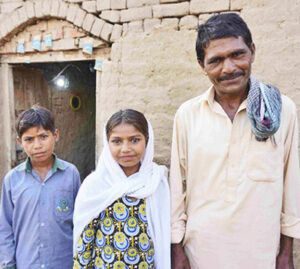 But I can still help this man and his family. I’m sure not rich but I do have enough to try at least to buy this man out of utter literal slavery and into some form of labor that will lift them up to a more endurable daily existence.
But I can still help this man and his family. I’m sure not rich but I do have enough to try at least to buy this man out of utter literal slavery and into some form of labor that will lift them up to a more endurable daily existence.
The Bible says, “Do not withhold good from those to whom it is due, when it is in the power of your hand to do so. Do not say to your neighbor, ‘Go, and come back, and tomorrow I will give it,’ when you have it with you” (Proverbs 3:27–28). And of course, there are countless more verses that carry this same truth.
I personally believe in both a social gospel and a personal gospel. Jesus “went about everywhere doing good” (Acts 10:38). At times, I feel overwhelmed and crushed by the injustice and falsehood that seem increasingly pervasive. Yet the Lord continues to show me things I can do personally—things that matter and make a difference.
Maybe I can’t right all the wrongs that glare at us daily.. But I can still do what I can. As the Lord said of one woman: “She has done what she could” (Mark 14:8).

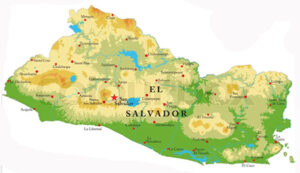
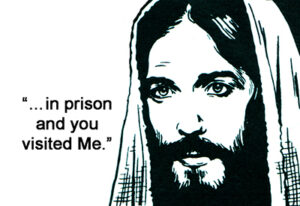 They strongly call us to something higher than the present putrid stench of politics that too often drags us down to the worst in humanity, no matter our race, nationality, or status.
They strongly call us to something higher than the present putrid stench of politics that too often drags us down to the worst in humanity, no matter our race, nationality, or status.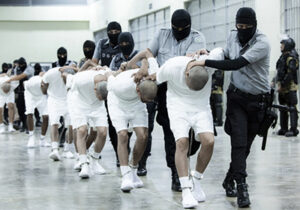 nstead, He continues to guide and prod us along towards worthy actions that we can take to be like the woman Jesus referred to, “
nstead, He continues to guide and prod us along towards worthy actions that we can take to be like the woman Jesus referred to, “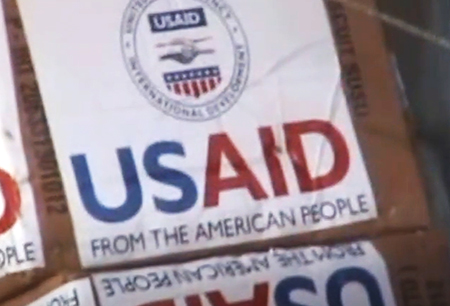
 Suddenly, there was a flurry of excitement as people pointed to the sky. A large helicopter, with no markings, began circling low over the camp. It then landed about 100 yards away and began unloading boxes. In the video, you can see dozens of Acehnese people, along with a tall Texan friend of mine, rushing toward the helicopter to investigate.
Suddenly, there was a flurry of excitement as people pointed to the sky. A large helicopter, with no markings, began circling low over the camp. It then landed about 100 yards away and began unloading boxes. In the video, you can see dozens of Acehnese people, along with a tall Texan friend of mine, rushing toward the helicopter to investigate. I assume the US forces wanted to avoid being identified or misunderstood in their motives. However, the aid boxes were clearly marked with “USAID,” making it evident that the US military and government were working to alleviate the suffering of the people.
I assume the US forces wanted to avoid being identified or misunderstood in their motives. However, the aid boxes were clearly marked with “USAID,” making it evident that the US military and government were working to alleviate the suffering of the people.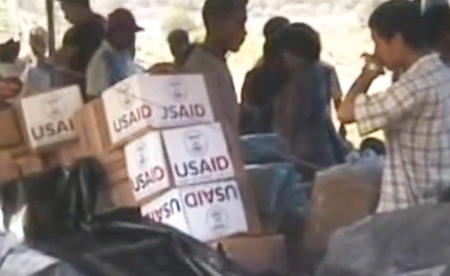 This morning, as I thought about the current controversy surrounding USAID in the United States, those memories came flooding back. There’s a massive shake-up underway in Washington. And while I believe much of it is necessary, I also find it personally relevant, given my own experiences abroad as a Christian aid worker, often in refugee camps and orphanages.
This morning, as I thought about the current controversy surrounding USAID in the United States, those memories came flooding back. There’s a massive shake-up underway in Washington. And while I believe much of it is necessary, I also find it personally relevant, given my own experiences abroad as a Christian aid worker, often in refugee camps and orphanages.
 Most of the people at this get together had already viewed
Most of the people at this get together had already viewed 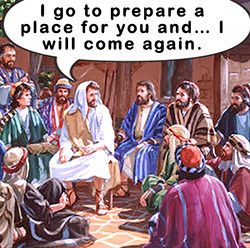 I felt led to pull together a list of blog articles that I’ve written over the last 10 years or so, touching on some of the most common questions that people have when it comes to the subject of what Jesus was referring to when He told His disciples, “
I felt led to pull together a list of blog articles that I’ve written over the last 10 years or so, touching on some of the most common questions that people have when it comes to the subject of what Jesus was referring to when He told His disciples, “ I’ll include here some of the articles that I shared with these ones, primarily related to questions people have about the return of the Lord. Often you can hear folks say, “Oh,
I’ll include here some of the articles that I shared with these ones, primarily related to questions people have about the return of the Lord. Often you can hear folks say, “Oh, 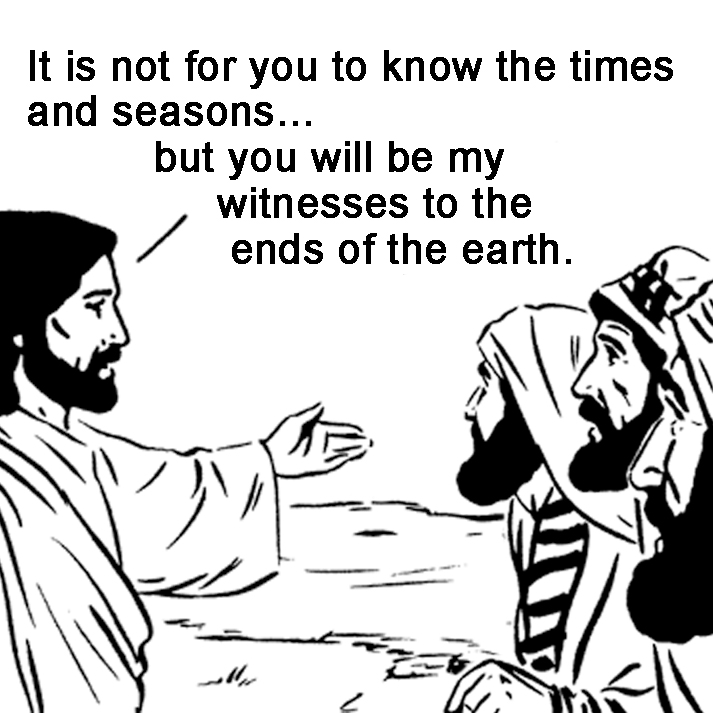 A similar thing people say on this subject, and they quote Jesus, is this: “
A similar thing people say on this subject, and they quote Jesus, is this: “ And you may have heard someone surprisingly tell you something like, “Oh, Jesus actually returned to the earth in 70 AD!” How can you factually and tactfully reply to someone who is saying that? I shared this article with my friends on this subject and how they might respond.
And you may have heard someone surprisingly tell you something like, “Oh, Jesus actually returned to the earth in 70 AD!” How can you factually and tactfully reply to someone who is saying that? I shared this article with my friends on this subject and how they might respond. 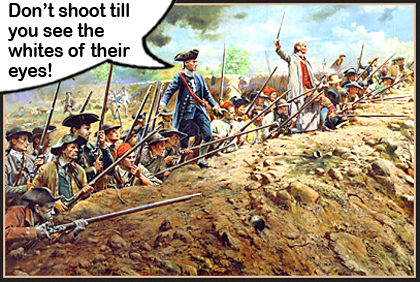 A question for many was, “How close are we?” “Can we tell in specifics how much longer it will be?” Big subject, big questions. Here’s what I shared about this, perhaps one of the articles that has been discussed the most,
A question for many was, “How close are we?” “Can we tell in specifics how much longer it will be?” Big subject, big questions. Here’s what I shared about this, perhaps one of the articles that has been discussed the most, I shared with them an article about my own experiences here over the last year or so involving the local school district I’m in and the battle there for the hearts and minds of the young people who go the schools near me. Here’s an article I shared with my friends about that.
I shared with them an article about my own experiences here over the last year or so involving the local school district I’m in and the battle there for the hearts and minds of the young people who go the schools near me. Here’s an article I shared with my friends about that.  PS You might be interested to know what the atmosphere and mood was at a get-together like this of dedicated East European Christians. Seven years ago I was living in Romania and went to a similar gathering. Here’s an article I wrote about how that was.
PS You might be interested to know what the atmosphere and mood was at a get-together like this of dedicated East European Christians. Seven years ago I was living in Romania and went to a similar gathering. Here’s an article I wrote about how that was.
 This is all part of a Christian ministry the Lord as led me into, to “feed His sheep”, as He told us to do. But primarily the method I’ve used to propagate these videos and blog articles to many countries has been Facebook.
This is all part of a Christian ministry the Lord as led me into, to “feed His sheep”, as He told us to do. But primarily the method I’ve used to propagate these videos and blog articles to many countries has been Facebook.
 Bingo!! Well, it wasn’t bingo right away but it was a glimmer of hope that I’d not had till then. In a few days she contacted me to say that sometimes these things really almost never got resolved. But that there were ways for ones on the inside to sort of “push people up the queue”.
Bingo!! Well, it wasn’t bingo right away but it was a glimmer of hope that I’d not had till then. In a few days she contacted me to say that sometimes these things really almost never got resolved. But that there were ways for ones on the inside to sort of “push people up the queue”.
 At the same time, this movie about these dedicated people at the very front of Christian discipleship in Burma and Iraq helped remind me to not “
At the same time, this movie about these dedicated people at the very front of Christian discipleship in Burma and Iraq helped remind me to not “ Jesus said, “
Jesus said, “ Or you may die in the next minute. [
Or you may die in the next minute. [
 I didn’t start crying that morning but I easily could have. Where were the laborers? Someone had walked off and left the crop in the field. And sadly this is exactly how it is right now in the lives of many laborers, as well as many fields all over this world.
I didn’t start crying that morning but I easily could have. Where were the laborers? Someone had walked off and left the crop in the field. And sadly this is exactly how it is right now in the lives of many laborers, as well as many fields all over this world. I don’t want to make anyone uncomfortable here but maybe I should say more since that is what I feel I was hearing from the Lord that morning. Are you a harvester who has left the field? Do you know how to share the gospel with others, to lead people to Christ, to feed His sheep? Are you still doing that?
I don’t want to make anyone uncomfortable here but maybe I should say more since that is what I feel I was hearing from the Lord that morning. Are you a harvester who has left the field? Do you know how to share the gospel with others, to lead people to Christ, to feed His sheep? Are you still doing that? Yes, you may have labored faithfully years ago in some fields, witnessed and won souls to Christ and fed His sheep. But the need is still very much there.
Yes, you may have labored faithfully years ago in some fields, witnessed and won souls to Christ and fed His sheep. But the need is still very much there. if only someone will explain it to them.
if only someone will explain it to them. It was a sad birthday picture that the Lord brought meaning to on my walk that morning. So few are laboring to bring in the harvest of souls who wait for the message of salvation in these, their times. Abandoned fields, abandoned harvester combines and evidently lost harvests. Please pray that He will quicken the hearts of the harvesters (maybe you?) to return to their callings and jobs. “
It was a sad birthday picture that the Lord brought meaning to on my walk that morning. So few are laboring to bring in the harvest of souls who wait for the message of salvation in these, their times. Abandoned fields, abandoned harvester combines and evidently lost harvests. Please pray that He will quicken the hearts of the harvesters (maybe you?) to return to their callings and jobs. “
 The country had years of what can be called Leftist leadership which ended up not turning out very well. Recently they’ve followed the pattern in countries around the world in electing a Conservative, pro-business president.
The country had years of what can be called Leftist leadership which ended up not turning out very well. Recently they’ve followed the pattern in countries around the world in electing a Conservative, pro-business president. So you pull up to the stop light with your window down and the guy comes up to you with a gun. He’s say something like, “
So you pull up to the stop light with your window down and the guy comes up to you with a gun. He’s say something like, “ There’s just something about genuine faith in God, or the lack of it. It even says in the Bible, amazingly, about Jesus, “
There’s just something about genuine faith in God, or the lack of it. It even says in the Bible, amazingly, about Jesus, “ Here in Brazil there’s just a lot of faith in God and love for the Lord. Yes, there is stark poverty, crime, and violence as well as endemic illiteracy. And yet…, and yet there are these other more ethereal intangibles in the way of faith, joy and warmth that are so often noticed and appreciated by people like me who come from afar and who sense that these rather heavenly essences are strong here.
Here in Brazil there’s just a lot of faith in God and love for the Lord. Yes, there is stark poverty, crime, and violence as well as endemic illiteracy. And yet…, and yet there are these other more ethereal intangibles in the way of faith, joy and warmth that are so often noticed and appreciated by people like me who come from afar and who sense that these rather heavenly essences are strong here.
 Bob Dylan once sang, “
Bob Dylan once sang, “ know virtually nothing of fear and confusion compared to
know virtually nothing of fear and confusion compared to  For me, the greatest call of allegiance in my heart is to Jesus Christ and His coming Kingdom on earth. That’s my sheet anchor of truth, morals, ethics and priorities. And some would say then that of course that means that you must fully put yourself down on the side of Right wing American political forces. You must be at the forefront of the cultural battle that rages and even be willing to “take up arms to take back our nation.”
For me, the greatest call of allegiance in my heart is to Jesus Christ and His coming Kingdom on earth. That’s my sheet anchor of truth, morals, ethics and priorities. And some would say then that of course that means that you must fully put yourself down on the side of Right wing American political forces. You must be at the forefront of the cultural battle that rages and even be willing to “take up arms to take back our nation.”
 However, many of us would draw back at some of the steps he’s taking to spread the faith. Religious coercion has a long sad history, both the Christian and the Muslim kind, and it’s certainly not the way Jesus taught His followers to win people to God’s ways. In fact, when you sort of take it apart, what this dear young man has been doing reminds me of the verse that says, “
However, many of us would draw back at some of the steps he’s taking to spread the faith. Religious coercion has a long sad history, both the Christian and the Muslim kind, and it’s certainly not the way Jesus taught His followers to win people to God’s ways. In fact, when you sort of take it apart, what this dear young man has been doing reminds me of the verse that says, “ Last Sunday I was speaking to the church here that I’ve spoken in a few times before when I’ve visited Bulgaria. The story of this young man caused me to wonder how much folks actually understand what it means to be saved and to become a “
Last Sunday I was speaking to the church here that I’ve spoken in a few times before when I’ve visited Bulgaria. The story of this young man caused me to wonder how much folks actually understand what it means to be saved and to become a “ My, oh my, how much sound and basic teaching is needed about such crucial, fundamental subjects as salvation itself and how to share the truths of God with others. Jesus even said, “
My, oh my, how much sound and basic teaching is needed about such crucial, fundamental subjects as salvation itself and how to share the truths of God with others. Jesus even said, “ It all reminds me of a haunting series of verses that often came to my mind back when I was a young Christian, from Amos 8:11-13. “
It all reminds me of a haunting series of verses that often came to my mind back when I was a young Christian, from Amos 8:11-13. “